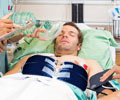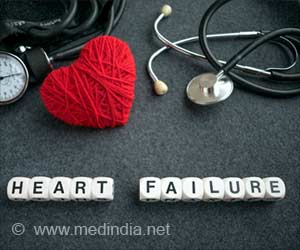Sudden cardiac arrest isn't always so sudden, reveals a study of middle-age men wherein more than half had possible warning signs up to a month before their hearts stopped abruptly.

About 360,000 out-of-hospital cardiac arrests are reported each year in the United States, according to the American Heart Association. Only 9.5 percent of people who suffer a cardiac arrest outside the hospital survive.
"By the time rescuers get there, it's much too late," said Eloi Marijon, M.D., study lead author and a visiting scientist at Cedars-Sinai Heart Institute in Los Angeles. The new research is part of the 11-year-old Oregon Sudden Unexpected Death Study, which involves 1 million people in the Portland metro area.
Researchers gathered information about the symptoms and health history of men 35 to 65 years old who had out-of-hospital cardiac arrests in 2002-12. Among 567 men who had out-of-hospital cardiac arrests, 53 percent had symptoms prior to the cardiac arrest. Of those with symptoms, 56 percent had chest pain, 13 percent had shortness of breath and 4 percent had dizziness, fainting or palpitations.
Almost 80 percent of the symptoms occurred between four weeks and one hour before the sudden cardiac arrest, he said. Most men had coronary artery disease, but only about half had been tested for it before their cardiac arrest.Researchers are conducting similar work in women.
"The lesson is, if you have these kinds of symptoms, please don't blow them off," said Sumeet Chugh, M.D., senior author and associate director for genomic cardiology at the Cedars-Sinai Heart Institute. "Go see your healthcare provider. Don't waste time."
Advertisement















